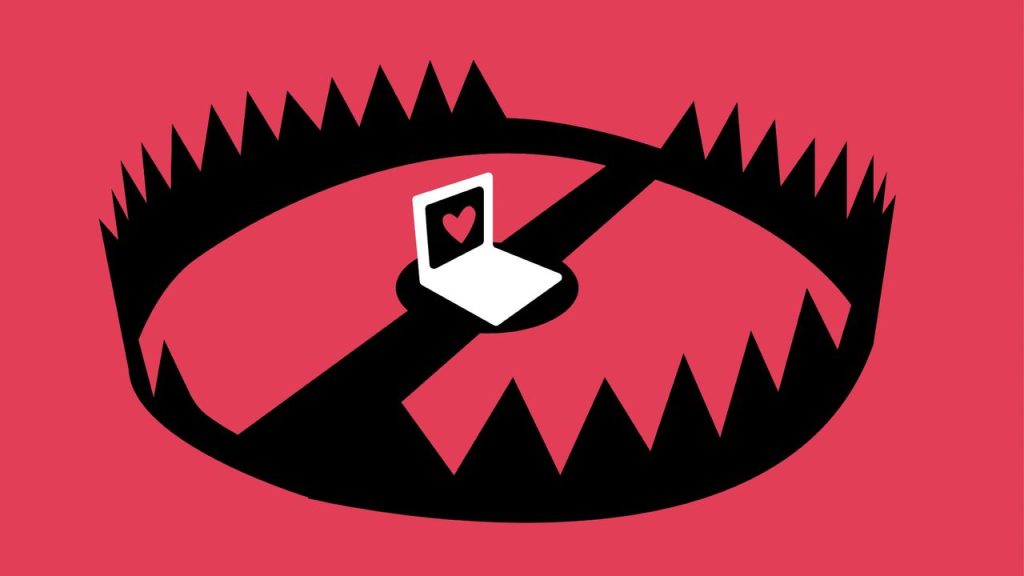Meeting someone online is easier than ever these days. But with the advent of AI and the profusion of scams, it is also harder than ever to know whether that special someone is actually who they say they are.
While potential scams are not the most romantic thing to think about when you are looking for love, they are an unfortunately common reality. Consumers lost an estimated $1.14 billion to these scams in 2023, with median losses of $2,000 — the “highest reported losses for any form of imposter scam,” said the Federal Trade Commission (FTC). That is why it’s vital to be aware of the danger signs.
How do romance scams work?
“So-called romance scams involve building a relationship and trust with the victim so that the target willingly provides access to their accounts or transfers money to the criminal,” said CNBC, citing Tracy Kitten, the director of fraud and security at Javelin Strategy & Research, a financial research services firm.
A common scam tactic is catfishing, which “involves creating a false online persona,” often using “photos of other people,” said Yahoo. It is common for these scams to start through online dating platforms, but scammers may also “send victims messages ‘out of the blue’ on social media or even via SMS,” said Norton, a cyber safety company.
What are the signs of a romance scam?
If you are dating in the digital age, here are some red flags to look out for:
They quickly want to move off the platform. “Because dating apps and sites threaten their nefarious mission, romantic scammers will suggest moving off the app to text or email,” said Reader’s Digest.
They seem almost too perfect. It is a warning sign if the person is “suddenly very interested in the same things as you,” said CNBC. Also, think twice if someone is too fast to fall for you, as “scammers often use flattery, pet names or exaggerated claims of love from the start to build trust and emotional dependence,” said Equifax, a credit bureau.
They won’t do a video call. Excuses like a “broken camera or bad internet often mean they’re hiding their real identity,” said Equifax.
They are working or living abroad. Scam artists “often say they are in the building and construction industry and are engaged in projects outside the U.S.,” as this “makes it easier to avoid meeting in person — and more plausible when they ask for money,” said the FBI.
They refuse to meet in person. “Frequent last-minute cancellations and vague explanations often mean they’re avoiding in-person meetings,” said Equifax — so be wary if plans keep getting pushed back.
How can you protect yourself?
If you are dating online, there are steps you can — and should — take to help ensure what you are finding is love, and not a trap expertly laid out by a fraudster:
Insist on a video call. Video chats are “almost impossible to fake, so ask the person you’re talking to for a cam-on discussion to determine if they’re real,” said Norton. Just be mindful about what you share.
Do some research. A reverse image search can reveal where else the person’s photo appears online, and whether it may be stolen. Also, see if you can confirm their background, such as “their age, location, job, education and anything else they’ve told you,” said Norton.
Avoid sending money. “Never, ever send money to someone you just met online,” regardless of whether they say they “need funds to visit you or offer up a sob story about a medical emergency,” said Reader’s Digest.
Don’t let love cloud your judgment
